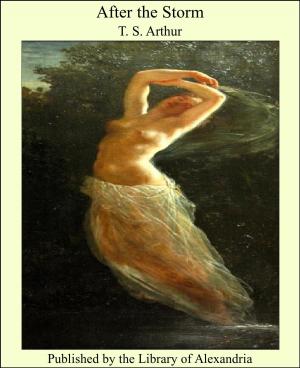| Author: | Walter W. Moore | ISBN: | 9781465603036 |
| Publisher: | Library of Alexandria | Publication: | March 8, 2015 |
| Imprint: | Language: | English |
| Author: | Walter W. Moore |
| ISBN: | 9781465603036 |
| Publisher: | Library of Alexandria |
| Publication: | March 8, 2015 |
| Imprint: | |
| Language: | English |
An American traveller says that a sea voyage, compared with land travel, is a good deal like matrimony compared with single blessedness: either decidedly better or decidedly worse. With me, on my first voyage to Europe a few years ago, it was, like my own venture in matrimony, decidedly better. We sailed from New York on a brilliant day, and nearly all the way over the weather was bright, bracing, buoyant, with blue sky above, blue sea beneath, and just enough motion of the water to give it all the fascination of changing beauty. Only once or twice did even our least seasoned passengers need "some visible means of support," on account of the rolling of the ship, and when we struck the Gulf Stream, deep blue and warm, it was pleasant on deck even without wraps, and I remember the captain's telling me he had seen the temperature of the water change thirty-one degrees in two minutes, when he would pass from the Gulf Stream into a colder current, though we ourselves had no such experience then. Day after day we lounged on deck restfully, or walked about comfortably, taking deep and leisurely inhalations of the pure ocean air, and having frequent opportunity to learn the meaning of "Cat's Paw" as applied to winds, when, under the gentle dips of air, the placid ocean took on a pitted appearance exactly like the tracks made by cats' feet in soft snow. Our present voyage has been very different, and I fear that some of the young people with me, who are familiar with my impressions of the former passage, have felt some disappointment with the ocean. The circumstances of our start were depressing, notwithstanding the animation of the scene at the North German Lloyd Pier, with its throng of carriages, baggage wagons, trucks, trunks, tourists' agents, passengers, and friends who had come to see them off, and who waved their handkerchiefs and shouted farewells and sang German songs, while the band on the Bremen played inspiring airs, and her own hoarse whistles capped the climax of the din, as the tugs pulled the great ship out into the river, and turned her prow towards the ocean, and her ponderous engines began to throb
An American traveller says that a sea voyage, compared with land travel, is a good deal like matrimony compared with single blessedness: either decidedly better or decidedly worse. With me, on my first voyage to Europe a few years ago, it was, like my own venture in matrimony, decidedly better. We sailed from New York on a brilliant day, and nearly all the way over the weather was bright, bracing, buoyant, with blue sky above, blue sea beneath, and just enough motion of the water to give it all the fascination of changing beauty. Only once or twice did even our least seasoned passengers need "some visible means of support," on account of the rolling of the ship, and when we struck the Gulf Stream, deep blue and warm, it was pleasant on deck even without wraps, and I remember the captain's telling me he had seen the temperature of the water change thirty-one degrees in two minutes, when he would pass from the Gulf Stream into a colder current, though we ourselves had no such experience then. Day after day we lounged on deck restfully, or walked about comfortably, taking deep and leisurely inhalations of the pure ocean air, and having frequent opportunity to learn the meaning of "Cat's Paw" as applied to winds, when, under the gentle dips of air, the placid ocean took on a pitted appearance exactly like the tracks made by cats' feet in soft snow. Our present voyage has been very different, and I fear that some of the young people with me, who are familiar with my impressions of the former passage, have felt some disappointment with the ocean. The circumstances of our start were depressing, notwithstanding the animation of the scene at the North German Lloyd Pier, with its throng of carriages, baggage wagons, trucks, trunks, tourists' agents, passengers, and friends who had come to see them off, and who waved their handkerchiefs and shouted farewells and sang German songs, while the band on the Bremen played inspiring airs, and her own hoarse whistles capped the climax of the din, as the tugs pulled the great ship out into the river, and turned her prow towards the ocean, and her ponderous engines began to throb















